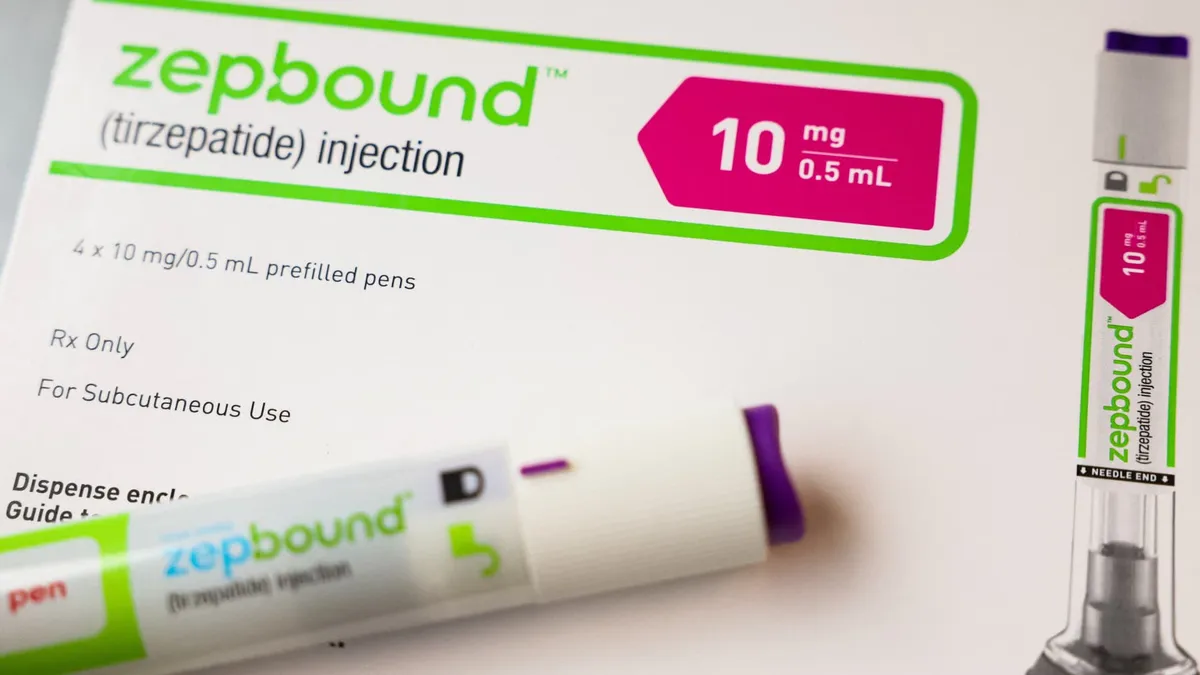
Eli Lilly announced on Tuesday that it is releasing higher doses of its weight loss drug Zepbound in single-dose vials at significantly reduced prices. This strategic move aims to make the blockbuster injection more accessible to patients without insurance coverage, including those with Medicare.
The company is working to boost the U.S. supply of Zepbound as demand continues to rise. The goal is to ensure that eligible patients have safe access to the authentic treatment, rather than turning to cheaper compounded versions. Eli Lilly is now offering these higher doses through a self-pay pharmacy section on its direct-to-consumer website, LillyDirect, which had previously introduced lower doses in vial form in August.
Patients diagnosed with obesity alone or in conjunction with obstructive sleep apnea—a newly approved use for Zepbound—can purchase these vials directly from the site. The company is offering 7.5 milligram and 10 milligram vials at $499 per month for the first prescription, with refills within 45 days at the same price. Outside this window, the costs increase to $599 and $699, respectively.
Additionally, Eli Lilly announced a $50 price reduction for the lower-dose vials. The 2.5 milligram vial is now priced at $349, while the 5 milligram vial is available for $499. This adjustment aims to make Zepbound more affordable for patients who are willing to self-pay, especially those under Medicare or employer-sponsored health plans that do not include obesity treatments.
Patients must administer the medication themselves using a syringe and needle, a process different from the single-dose autoinjector pens currently available for all Zepbound doses. These vials are easier to manufacture than autoinjector pens, which are priced around $1,000 per month before insurance coverage.
Typically, treatment begins with a 2.5 milligram dose for four weeks, with a gradual increase in dosage until reaching maintenance doses. Currently, the highest doses of Zepbound—12.5 milligrams and 15 milligrams—are not available in single-dose vials.
The new pricing strategy is particularly beneficial for Medicare patients, who are not eligible for Eli Lilly's savings card programs for Zepbound. Patrik Jonsson, president of Eli Lilly diabetes and obesity, emphasized the company's commitment to providing a more affordable solution for the Medicare population, despite the lack of full coverage for obesity treatments.
Jonsson expressed hope that future policy changes might lead to Medicare covering obesity medications. However, skepticism remains, as illustrated by U.S. Department of Health and Human Services Secretary Robert F. Kennedy Jr.'s cautious stance on weight loss drugs.
Some patients have turned to compounding pharmacies for cheaper versions of Zepbound due to high costs and past shortages. However, the U.S. Food and Drug Administration recently declared the Zepbound shortage over, which will soon restrict many compounding pharmacies from producing these versions.
Jonsson clarified that Eli Lilly is not focused on competing with compounders, as the market for mass compounding is diminishing. The company's latest announcement is aimed at ensuring patients receive FDA-approved treatments for safety, efficacy, and quality.